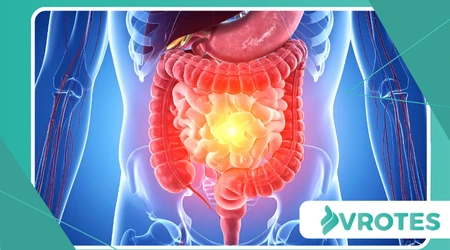The Role of Gut Health in Reducing Menopause Digestive Issues

Gut health in reducing menopause digestive issues. As estrogen levels fluctuate and decline during perimenopause and menopause, the delicate balance of our gut microbiome can be significantly disrupted.
This intricate community of bacteria, fungi, and other microorganisms plays a vital role in everything from nutrient absorption to immune function.
When this balance is compromised, a ripple effect can lead to various digestive complaints.
Unpacking Common Digestive Woes in Menopause
Many women experience an array of digestive symptoms during menopause that they may not immediately connect to this life stage.
Bloating, gas, constipation, and even new onset food sensitivities are incredibly common. These issues can be debilitating, impacting daily life and overall well-being.
The Estrogen-Microbiome Link: A Deeper Dive
Estrogen has a profound influence on the gut microbiome. Research indicates that estrogen helps maintain a diverse and healthy microbial community.
When estrogen declines, this diversity can diminish, leading to an overgrowth of less beneficial bacteria. This imbalance is known as dysbiosis.
Other Contributing Factors
While hormonal shifts are central, other factors can exacerbate digestive issues.
Stress, dietary changes, certain medications, and even changes in sleep patterns can all contribute to an unhappy gut during menopause. It’s a multifaceted problem requiring a holistic approach.
Strategies for Nurturing Your Gut: Paving the Way for Relief
Fortunately, there are actionable steps women can take to support their gut health in reducing menopause digestive issues.
Empowering yourself with knowledge and making informed choices can significantly alleviate discomfort. Think of your gut like a garden: it thrives with careful cultivation.

The Power of Probiotics and Prebiotics
Introducing beneficial bacteria through probiotics and feeding the existing good bacteria with prebiotics are foundational.
See how interesting: Proven Breathing Techniques to Calm Menopause Anxiety
Fermented foods like kimchi, sauerkraut, and kefir are excellent natural sources of probiotics. Prebiotics, found in foods like onions, garlic, and bananas, act as fuel for these helpful microbes.
Fiber: Your Digestive System’s Best Friend
Adequate fiber intake is paramount for a healthy digestive system. It adds bulk to stool, aids in regular bowel movements, and supports a diverse microbiome.
Incorporate a variety of fruits, vegetables, whole grains, and legumes into your diet. Aim for both soluble and insoluble fibers.
Hydration: Simple Yet Profound
Often overlooked, sufficient water intake is critical for digestive health. Water helps soften stool, facilitating easier passage and preventing constipation.
It also supports the overall function of your digestive tract. Make it a habit to drink water consistently throughout the day.
A Calmer Gut Begins Here
The gut-brain axis is a powerful connection. High stress levels can directly impact gut motility and inflammation.
Incorporating stress-reducing practices such as meditation, yoga, deep breathing exercises, or even spending time in nature can have a tangible positive effect on your digestive well-being.
Mindful Eating: Savoring for Better Digestion
Eating mindfully means paying attention to your food, chewing thoroughly, and avoiding rushed meals. This practice allows your body to better prepare for digestion, sending the right signals to your digestive enzymes and supporting nutrient absorption. Slowing down can make a big difference.

The Role of Specific Nutrients
Beyond general healthy eating, certain nutrients are particularly beneficial. Magnesium, for instance, can help with constipation due to its muscle-relaxing properties.
Read here: Guided Meditation Scripts for Hormonal Turmoil
Omega-3 fatty acids possess anti-inflammatory properties that can soothe an irritated gut. Consulting with a nutritionist can help tailor your intake.
Sarah’s Transformation
Consider Sarah, a 52-year-old marketing executive, who for months suffered from persistent bloating and erratic bowel movements. She attributed it to her busy schedule.
After learning about the gut-menopause connection, she started incorporating a daily probiotic, increased her fiber intake with more vegetables, and began a short daily meditation practice.
Within weeks, her bloating significantly reduced, and her bowel movements became regular. She felt lighter and more energetic, a testament to the power of targeted gut support.The Curious Case of Maria
Maria, 49, found herself developing new intolerances to foods she’d enjoyed for years, particularly dairy and gluten, leading to severe stomach cramps.
While exploring her symptoms, she discovered the link between declining estrogen and increased gut permeability, or “leaky gut.”
By focusing on gut-healing foods like bone broth, fermented foods, and reducing inflammatory triggers, her food sensitivities lessened, and her digestive distress became manageable, illustrating how a focused approach can mitigate such issues.
When to Seek Professional Guidance
While many strategies can be implemented independently, it’s crucial to know when to seek professional help.
If your digestive symptoms are severe, persistent, or accompanied by other concerning signs like unexplained weight loss or blood in your stool, consult your doctor.
A healthcare provider can rule out other conditions and provide personalized recommendations.
The Power of a Personalized Approach
Every woman’s menopause journey is unique, and so is her gut. What works for one person may not work for another.
A personalized approach, possibly involving a functional medicine practitioner or a registered dietitian specializing in women’s health, can be invaluable.
They can help identify specific imbalances and create a targeted plan.
A Glimpse into the Future
A study published in Menopause in 2023 highlighted the intricate relationship between the gut microbiome, estrogen metabolism, and menopausal symptoms.
++ Dairy vs. Plant-Based: Choosing Calcium Sources Post-50
Researchers are increasingly focusing on the “estrobolome,” a collection of gut bacteria that metabolize estrogen, demonstrating its critical role in hormonal balance during this transition.
This ongoing research underscores the importance of gut health in reducing menopause digestive issues.
Demystifying Digestive Health: A Table of Common Symptoms and Solutions
To further clarify, here’s a helpful overview of common menopausal digestive symptoms and potential solutions:
| Symptom | Potential Gut Health Connection | Suggested Gut-Friendly Approaches |
| Bloating & Gas | Dysbiosis, slow transit time, food intolerances | Probiotics, prebiotics, digestive enzymes, mindful eating, identifying trigger foods |
| Constipation | Reduced gut motility, dehydration, lack of fiber, dysbiosis | Increased fiber intake, adequate hydration, magnesium supplements, probiotics, regular movement |
| Diarrhea | Dysbiosis, increased gut permeability, stress | Probiotics, stress management, identifying trigger foods, ensuring adequate hydration to prevent dehydration |
| Heartburn/Reflux | Weakened lower esophageal sphincter, altered gut microbiome | Smaller, more frequent meals, avoiding trigger foods (e.g., spicy, fatty), stress reduction, probiotics |
| Food Sensitivities | Increased gut permeability (“leaky gut”), dysbiosis | Gut-healing foods (bone broth), probiotics, eliminating inflammatory foods, nutrient support |
Symphony Orchestra
Think of your gut microbiome as a grand symphony orchestra. Each type of bacteria is like a different instrument, playing its part to create a harmonious and healthy digestive process.
When estrogen declines, it’s like the conductor steps away, and some instruments (beneficial bacteria) start to falter, while others (less beneficial ones) might play too loudly, creating discord.
Supporting your gut health in reducing menopause digestive issues means bringing in a new conductor (lifestyle changes) and ensuring each instrument plays its part, restoring the beautiful digestive symphony.
Mental and Emotional Well-being
Addressing digestive issues during menopause extends beyond physical comfort.
The constant discomfort, embarrassment, and worry can significantly impact mental and emotional well-being, leading to anxiety and reduced quality of life. Improving gut health therefore offers a ripple effect of benefits.
Take Control of Your Gut
You don’t have to suffer in silence. Understanding the profound influence of gut health in reducing menopause digestive issues empowers you to take proactive steps.
Small, consistent changes can lead to remarkable improvements. Isn’t it time you prioritized your digestive comfort?
Embracing a Healthier Gut, Embracing a Healthier Menopause
The journey through menopause is deeply personal, but common threads of experience bind us. Digestive discomfort is undeniably one such thread.
By understanding the intricate connections between hormones, the gut microbiome, and overall well-being, women can reclaim control.
Prioritizing gut health in reducing menopause digestive issues is not just about alleviating symptoms; it’s about fostering a foundation for vitality and comfort during this transformative phase of life.
Embrace the power of your gut, and empower yourself for a smoother, healthier menopause.
Frequently Asked Questions
Are probiotics really effective for menopausal digestive issues?
Yes, many studies and clinical experience suggest that probiotics can be very helpful.
They aid in restoring the balance of gut flora, which can alleviate bloating, constipation, and other common digestive symptoms during menopause.
It’s important to choose a high-quality probiotic with diverse strains.
How long does it take to see improvements in gut health?
The time to see improvements can vary significantly. Some women report feeling better within a few weeks, while for others it might take a few months.
Consistency in implementing dietary and lifestyle changes is crucial for lasting results.
Does diet play a more important role than supplements for gut health?
Both are important, but diet is the foundation. No amount of supplements can compensate for a nutrient-poor diet.
A diet rich in fiber, fermented foods, and a variety of fruits and vegetables is essential. Supplements can be a useful complement to fill gaps or accelerate the process.
Does stress really affect digestion during menopause?
Absolutely. Stress has a direct impact on the gut-brain axis, potentially altering intestinal motility, digestive enzyme secretion, and even the composition of the microbiome.
Managing stress is a crucial part of any gut health plan.
Is it normal to have new digestive problems during menopause if I never had them before?
Yes, it’s very common. Hormonal fluctuations, especially decreased estrogen, can trigger the development of new digestive issues or worsen pre-existing conditions.
This is due to estrogen’s influence on gut barrier integrity and microbiome composition.
++ The gut microbiota in menopause: Is there a role for prebiotic and probiotic solutions?
